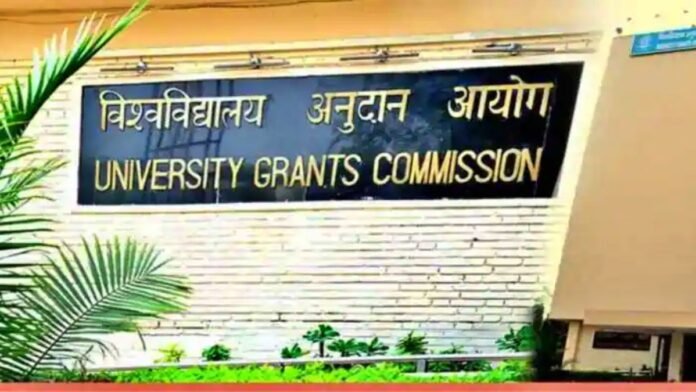
- The UGC has issued draft guidelines for the implementation of the reservation policy of the Government of India in higher education institutions.
- The draft guidelines propose that reserved vacancies for SC, ST, and OBC candidates can be declared unreserved if enough candidates from these categories are not available, subject to certain conditions and procedures.
- The draft guidelines have invited objections and suggestions from the stakeholders, but have also faced criticism and protests from various quarters, especially student unions.
New Delhi: The University Grants Commission (UGC) has released draft guidelines for the implementation of the reservation policy of the Government of India in higher education institutions (HEIs). The draft guidelines, which are open for public feedback till February 15, 2024, aim to ensure the effective implementation of the constitutional provisions and government orders related to reservation for the members of Scheduled Castes (SC), Scheduled Tribes (ST), Other Backward Classes (OBC), and Economically Weaker Sections (EWS) in HEIs.
The draft guidelines cover various aspects of the reservation policy, such as the quantum of reservation, the creamy layer criterion, the relaxation and concessions, the determination of reservation quota, the reservation registers and roster registers, the filling up of reserved vacancies, the verification of caste, the reservation in pool accommodation, the monitoring authorities, the reservation in admissions, and the responsibility for implementation.
One of the most contentious provisions of the draft guidelines is the possibility of de-reservation of vacancies meant for SC, ST, and OBC candidates in case of non-availability of suitable candidates from these categories. The draft guidelines state that a vacancy reserved for SC, ST, or OBC candidates cannot be filled by any candidate other than the candidate concerned. However, they also state that a reserved vacancy can be declared unreserved by following the procedure of de-reservation, after which it can be filled as an unreserved vacancy.
The draft guidelines specify that de-reservation can be done only in rare and exceptional cases, and only after making sufficient efforts to fill the reserved vacancy. They also state that there is a restriction on de-reserving vacancies in case of direct recruitment and that no vacancy in Group A service can be left vacant in the public interest. The draft guidelines suggest that the proposal for de-reservation should be sent to the Executive Council of the University or the Ministry of Education, as the case may be, for necessary approval, and that the reservation should be carried forward to the subsequent recruitment year.

The draft guidelines have drawn sharp reactions from various quarters, especially from student unions, who have accused the UGC of diluting the reservation policy and violating the constitutional rights of the marginalized sections. The Jawaharlal Nehru Students Union (JNUSU) has announced to protest against the draft guidelines and burn the effigy of UGC Chairman M Jagadish Kumar. The JNUSU has also demanded the withdrawal of the draft guidelines and the resignation of the UGC Chairman. The UGC Chairman has not responded to the criticism of the draft guidelines so far.


















































